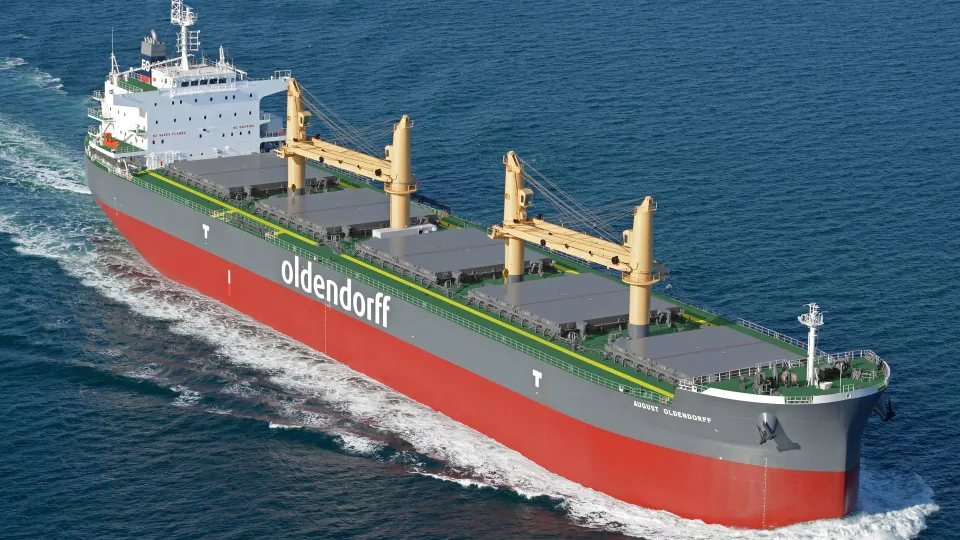Oldendorff, Star Bulk and mining companies Rio Tinto and BHP seek to establish a green corridor to ensure access to green fuels en route from Australia to East Asia, betting on green ammonia as fuel on this route.
SINGAPORE
When large dry cargoes are to be sailed from the iron ore mines in Australia towards East Asia in a few years’ time, ships from Oldendorff and Star Bulk are likely to sail on green ammonia in a specific green corridor.
This is the intention of a consortium consisting of the Global Maritime Forum, the mining companies BHP and Rio Tinto as well as the dry cargo shipping companies Oldendorff and Star Bulk.
The partners have just signed a letter of intent to help establish a so-called green corridor between Australia and East Asia, according to a press release..
In the green corridor – or the shipping route with certain connected ports – the plan is for the shipping companies to be able to bunker fossil-free, green ammonia fuel when sailing iron ore from the mines in Australia to customers in East Asia.
The necessary infrastructure for green ammonia and production of the fossil-free fuel in connection with the infrastructure must then be built.
It was climate group the Getting to Zero Coalition that last year drafted the initiative for the UN climate summit COP26 and at that time published the report ”The Next Wave: Green Corridors.”
The report reviewed how the corridors between the major ports, which support zero-emission solutions, can be developed in a way that can accelerate the green transformation of the shipping sector.
Among other things, the report showed that it would be possible to build a route for iron ore cargoes between Australia and East Asia.
The report concluded that green ammonia would be the obvious choice as fuel for the route as there are good conditions for production, a good regulatory environment and willing stakeholders.
Oldendorff has 700 dry bulk vessels
“Zero-greenhouse gas emission pathways require the creation of a parallel value chain that involves new ways of working, new contractual relationships, and drives the development of decarbonized fuel production and infrastructure. This new iron ore green corridor collaboration is an important step towards enabling zero greenhouse gas emission shipping from both the supply and demand side,” says Johannah Christensen, CEO of Global Maritime Forum, in the release.
The consortium will now investigate the possibilities of producing and supplying green ammonia and establishing bunker facilities. It is crucial that the project is realized and comes into operation.
The partners in the consortium do not provide a timetable or framework for necessary investments in the green corridor for iron ore transports.
German Oldendorff is with approx. 700 ships one of the world’s largest dry bulk shipping companies. Greek Star Bulk, which is listed in New York, has a fleet of 128 dry cargo ships.
A total of 23 countries have signed the so-called Clydebank Declaration for Green Corridors, most recently Singapore.
The European Green Corridors Network, presented last week, includes the ports of Hamburg, Gdynia, Roenne, Rotterdam and Tallinn.
Singapore joins initiative on green corridors
Shipowners must order 4,000 green ships a year to decarbonize shipping in time






